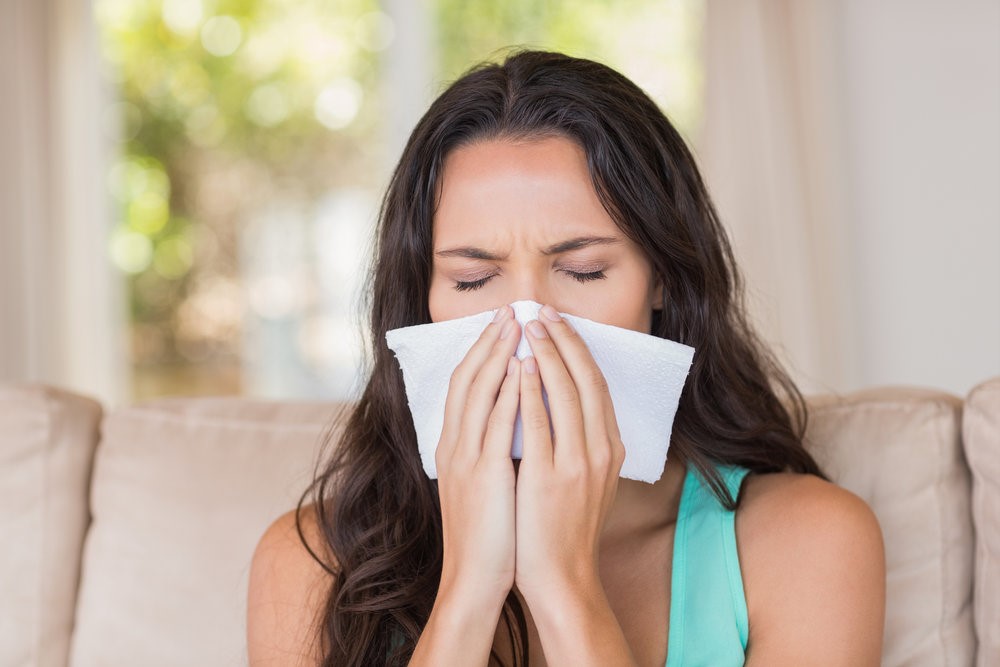How Insulation Impacts Indoor Air Quality and Enhances Home Comfort

Indoor air quality (IAQ) plays a crucial role in creating a comfortable, healthy living environment. When it comes to maintaining good IAQ, insulation is one of the most effective yet overlooked solutions. Beyond just regulating temperature, insulation serves as a barrier against outdoor pollutants, moisture, and allergens that could otherwise seep into your home. Proper insulation from Koala Insulation of St. Paul can improve IAQ by blocking harmful pollutants, reducing humidity, and preventing mold growth, making your home a healthier, more comfortable place to live.
Learn more about how insulation can impact IAQ and how Koala Insulation of St. Paul can help by visiting our website.
The Relationship Between Insulation and Indoor Air Quality
Insulation helps maintain IAQ in several essential ways. By acting as a barrier between the interior and exterior environments, it regulates airflow, prevents moisture intrusion, and limits the entry of pollutants. Here’s how insulation from Koala Insulation of St. Paul directly impacts IAQ:
- Controlling Pollutants: Insulation helps prevent outdoor contaminants, such as pollen, dust, and vehicle emissions, from entering your home. Without proper insulation, these pollutants can infiltrate your indoor space, affecting respiratory health, allergies, and overall air quality.
- Reducing Moisture and Humidity: Insulation plays a vital role in controlling indoor humidity levels. Moisture entering through gaps and cracks can create an ideal environment for mold growth, which releases spores that affect air quality and may lead to respiratory issues. Insulation creates an air-tight barrier that helps regulate humidity, keeping your home dry and comfortable.
- Minimizing Chemical Emissions: Some types of insulation materials, especially high-quality options, have low levels of volatile organic compounds (VOCs), which can improve indoor air quality by reducing chemical exposure. Choosing the right insulation material can make a noticeable difference in IAQ by minimizing these emissions.
- Improving Temperature Regulation: When your home’s insulation is effective, it works together with the HVAC system to maintain a stable indoor environment. Consistent temperatures reduce the need for overworking your HVAC system, which can help reduce indoor air pollutants from heating and cooling sources.
How Insulation Improves Indoor Air Quality
Proper insulation is a key factor in maintaining a clean, healthy indoor environment. Let’s break down some of the ways insulation directly enhances IAQ:
1. Blocking Outdoor Pollutants
Insulation creates a barrier that prevents outside air, dust, and allergens from entering your home. This barrier is especially important for those who suffer from allergies, asthma, or other respiratory issues. Insulation reduces drafts, sealing any cracks and gaps where pollutants could enter. By keeping outdoor contaminants out, insulation from Koala Insulation of St. Paul helps maintain a cleaner, healthier indoor environment.
2. Controlling Moisture and Preventing Mold Growth
Excess moisture in a home can lead to mold, mildew, and other problems that directly impact air quality. Mold spores, in particular, can trigger allergies, asthma, and other respiratory problems. By creating an air-tight seal, insulation helps keep humidity levels low and prevents water from seeping into your home, particularly in areas like the attic and basement. For climates with high humidity levels, insulation such as spray foam is especially effective in controlling moisture, minimizing the chance of mold growth, and maintaining cleaner air indoors.
3. Reducing Airborne Particles and Allergens
Insulation also serves as a filter that slows down the movement of dust, pollen, and other airborne particles. This filtering effect can improve air quality by reducing the circulation of contaminants throughout your home. Fiberglass and cellulose insulation are particularly effective at filtering airborne particles, contributing to a cleaner, healthier living space.
4. Limiting Chemical Off-Gassing
Certain insulation materials emit chemicals, known as volatile organic compounds (VOCs), which can have negative effects on indoor air quality. By choosing insulation materials with low VOC emissions, you can limit the amount of off-gassing in your home. Eco-friendly insulation options, such as formaldehyde-free fiberglass or spray foam, emit minimal VOCs and are an excellent choice for those looking to improve IAQ. Koala Insulation of St. Paul offers insulation solutions that prioritize both health and environmental safety.
Types of Insulation that Enhance Indoor Air Quality
Not all insulation materials have the same impact on IAQ. Some options work better than others when it comes to creating a healthier indoor environment. Here’s a look at a few insulation types offered by Koala Insulation of St. Paul that can help enhance IAQ:
Spray Foam Insulation
Spray foam insulation provides an airtight seal that blocks air leakage, keeps moisture out, and reduces allergens. Because it fills every gap and crevice, spray foam is particularly effective at managing humidity levels and creating a controlled environment. It also emits fewer VOCs, making it a healthier option for improving IAQ. Spray foam is ideal for those seeking high performance and minimal chemical exposure.
Blown-In Cellulose Insulation
Blown-in cellulose insulation is made from recycled materials and treated to resist mold and pests. Its density creates a barrier that blocks pollutants, reduces drafts, and enhances IAQ. Cellulose insulation is particularly effective at reducing the infiltration of allergens and airborne particles, making it a great choice for those with allergies or respiratory concerns.
Fiberglass Insulation
Fiberglass insulation, available in batts or as blown-in, effectively reduces heat transfer and filters out particles that could otherwise circulate in your home. Many fiberglass options today are formaldehyde-free, reducing chemical exposure. Fiberglass also provides a sound barrier, which can reduce noise pollution indoors, enhancing overall comfort.
Signs Your Home’s Insulation May Be Affecting Indoor Air Quality
If you’re experiencing any of these signs, your insulation might not be supporting optimal air quality:
- High Levels of Dust or Allergens: If you frequently notice dust buildup or experience allergy symptoms indoors, it may be due to inadequate insulation that allows outdoor contaminants to enter.
- Musty Odors or Visible Mold: Persistent musty smells or mold in areas like the attic or basement are indications of moisture intrusion, which could be due to insufficient insulation. Mold growth is a major contributor to poor IAQ.
- Inconsistent Temperatures: If certain rooms are hotter or cooler than others, drafts may be entering due to poor insulation, allowing airborne pollutants to flow in and out more freely.
- Frequent HVAC Usage: If your heating or cooling system seems to be running constantly, your insulation might not be providing an effective thermal barrier, leading to greater air exchange and potential pollutant entry.
Tips for Improving Indoor Air Quality Alongside Insulation
While insulation is essential for IAQ, a few additional practices can further enhance your home’s air quality:
- Ventilation: Ensure proper ventilation, particularly in bathrooms and kitchens, to reduce indoor humidity and pollutant buildup.
- Regular HVAC Maintenance: Replace filters regularly to reduce dust and allergens and have your HVAC system serviced to improve air circulation.
- Using a Dehumidifier: For homes in humid climates, a dehumidifier can help control moisture levels, complementing your insulation and maintaining air quality.
Choosing Koala Insulation of St. Paul for Healthier Indoor Air Quality
At Koala Insulation of St. Paul, we understand the important role insulation plays in indoor air quality. Our team of insulation experts can assess your home and recommend the best insulation materials and installation techniques to improve IAQ and create a healthier environment for you and your family. Proper insulation not only helps to reduce energy costs but also enhances your home’s overall air quality, making it a worthwhile investment for your comfort and well-being.
For more information on how insulation can improve indoor air quality, visit Koala Insulation of St. Paul. Give us a call at (651) 272-2720 to schedule a consultation or get a free estimate. Let us help you create a cleaner, healthier home with professional insulation solutions that put IAQ first.
Find Your Location


Get a quote


